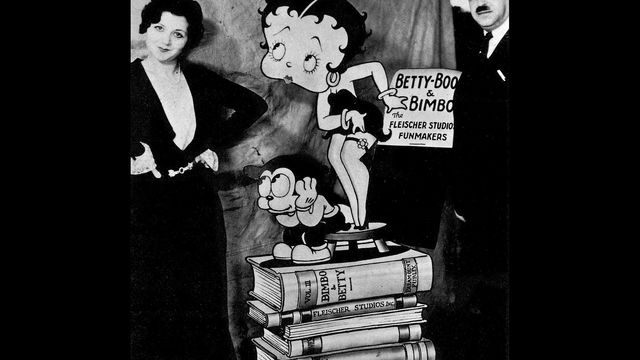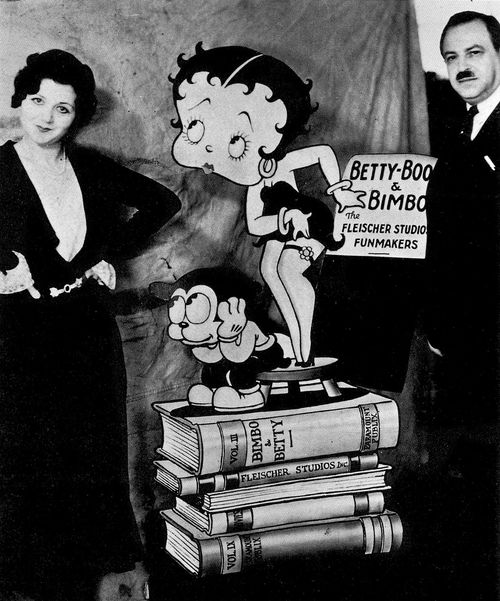
Family Flicks Film Series: Betty Boop and Friends: Classic ’Toons Come Alive!
- This is a past program
Recommended for ages 5+*
Raggedy Ann and Andy, Betty Boop, Poe’s Raven, and more—a kaleidoscope of classic cartoon characters come to life on the big screen! Journey back to the 1930s and 1940s via the colorful, musical, comical world of pre-digital, hand-drawn animation, featuring classic works by Max and Dave Fleischer, George Pal, and others, newly preserved by the UCLA Film & Television Archive with support, in part, from ASIFA-Hollywood. (35mm, color & b/w, approx. 70 min.)
Scroll down for descriptions of about each film, with running times.
*All ages are welcome. Feel free to take a break with infants and toddlers in the theater lobby.
Family Flicks Film Series
Details about each film presented
Raggedy Ann and Raggedy Andy (1940)
The homespun charm of Raggedy Ann and Andy, the beloved characters conceived by turn-of-the-century illustrator and author Johnny Gruelle, ably transposed to the big screen by Max and Dave Fleischer who spin a charming origin story for the iconic ragamuffins in this Technicolor fairy tale. Brought to life in Glad Rags Doll Factory in the mythical Ragland, Ann and Andy are separated while on their way to the Castle of Names until the Camel with the Wrinkled Knees comes to the rescue.
35mm, color, 18 min. Director: Dave Fleischer. Restored from the 35mm nitrate successive exposure negative and the 35mm track negative. Special thanks to Paramount Pictures.
In the Fleischer Bros.’ animated take on Edgar Allen Poe’s The Raven, the titular bird still comes “rapping and a tapping” at the door but rather than a harbinger of inconsolable grief, he’s selling vacuum cleaners. That is until the big bad wolf tempts him to rob the joint instead. Add in the lord of the manor, a kilt-wearing Scottie dog, and things go off the literary rails pretty quickly as the anarchic fun ramps up. —Paul Malcolm
35mm, color, 14 min. Director: Dave Fleischer. Restored from the 35mm nitrate successive exposure negative and the 35mm track negative. Special thanks to Paramount Pictures.
Dinah (1932)
Honest Love and True (1938)
Educated Fish (1937)
ATTENDING THIS PROGRAM?
ALL HAMMER PROGRAMS ARE FREE
Location: Billy Wilder Theater
Ticketing: This program is not ticketed.
Parking: Under the museum, $6 flat rate on weekends. Cash only.
Food and drink may not be carried into the Billy Wilder Theater. Read our food, bag check, and photo policies.
The Hammer is dedicated to providing a comfortable and engaging experience for all ages. Children under 12 are welcome to visit with adult companions.
All Hammer public programs are free and made possible by a major gift from an anonymous donor.
Generous support is also provided by Susan Bay Nimoy and Leonard Nimoy, Good Works Foundation and Laura Donnelley, an anonymous donor, The Samuel Goldwyn Foundation, and all Hammer members.
The Hammer’s digital presentation of its public programs is made possible by the Billy and Audrey L. Wilder Foundation.
Hammer Kids is made possible through the generosity of the Anthony Pritzker Family Foundation.
Hammer Kids also receives support from friends of the Hammer Museum’s Kids’ Art Museum Project (K.A.M.P.), an annual family fundraiser. Additional funding is provided by The Rosalinde and Arthur Gilbert Foundation.




